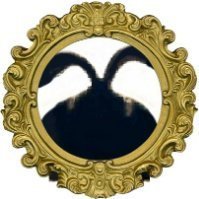I Just Don't Believe It!
-
Recently Browsing 0 members
- No registered users viewing this page.
-
Topics
-
Popular Contributors
-
Latest posts...
-
59
If there is no life after death...
But still, people who do see, hear and feel things, will start investigate, and I believe we will end up somewhere or somewhat we already dealing with. There is purposes for everything, even religion. Many philosophers, scientists and religious have understood why we need something else than pragmatic logical common sense. We need the feeling of belonging to something greater. What is your poison? -
59
If there is no life after death...
As would faith and hope. Hoping there is something after has many living food lives. No hope would have many doing things they wouldn't do otherwise, killing people they didn't like, raping women because they can, and hurting others in countless ways. Raising children to believe isn't poisoning them but giving them hope. They can always decide what they want to do when they reach adulthood. -
50
Report Thailand Eases Alcohol Laws Amid Concerns Over Safety Impact
What is causing alcohol deaths is the Rocket fuel produced in local houses and sold ,plus the lacing of drinks at island venues. -
45
Report Cannabis Advocates Warn of Fallout from Thailand’s New Medical Use Rule
Anutin comes to mind -
65
Manchild who is president of the US throws his pacificier out of the pram again.
“Trump has zero understanding of globalization “ And you are the resident expert? Why aren’t you in the WH? -
59
If there is no life after death...
Your consciousness dies when your brain activity stops; dead is dead. But I accept some folk like to believe in an afterlife, some greater purpose than simply the replication and survival of your genes across generations, but I'm happy with the latter.
-
-
Popular in The Pub
-





.thumb.jpeg.d2d19a66404642fd9ff62d6262fd153e.jpeg)




Recommended Posts
Create an account or sign in to comment
You need to be a member in order to leave a comment
Create an account
Sign up for a new account in our community. It's easy!
Register a new accountSign in
Already have an account? Sign in here.
Sign In Now